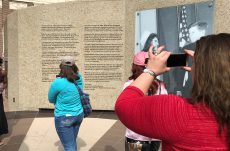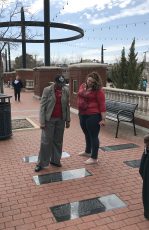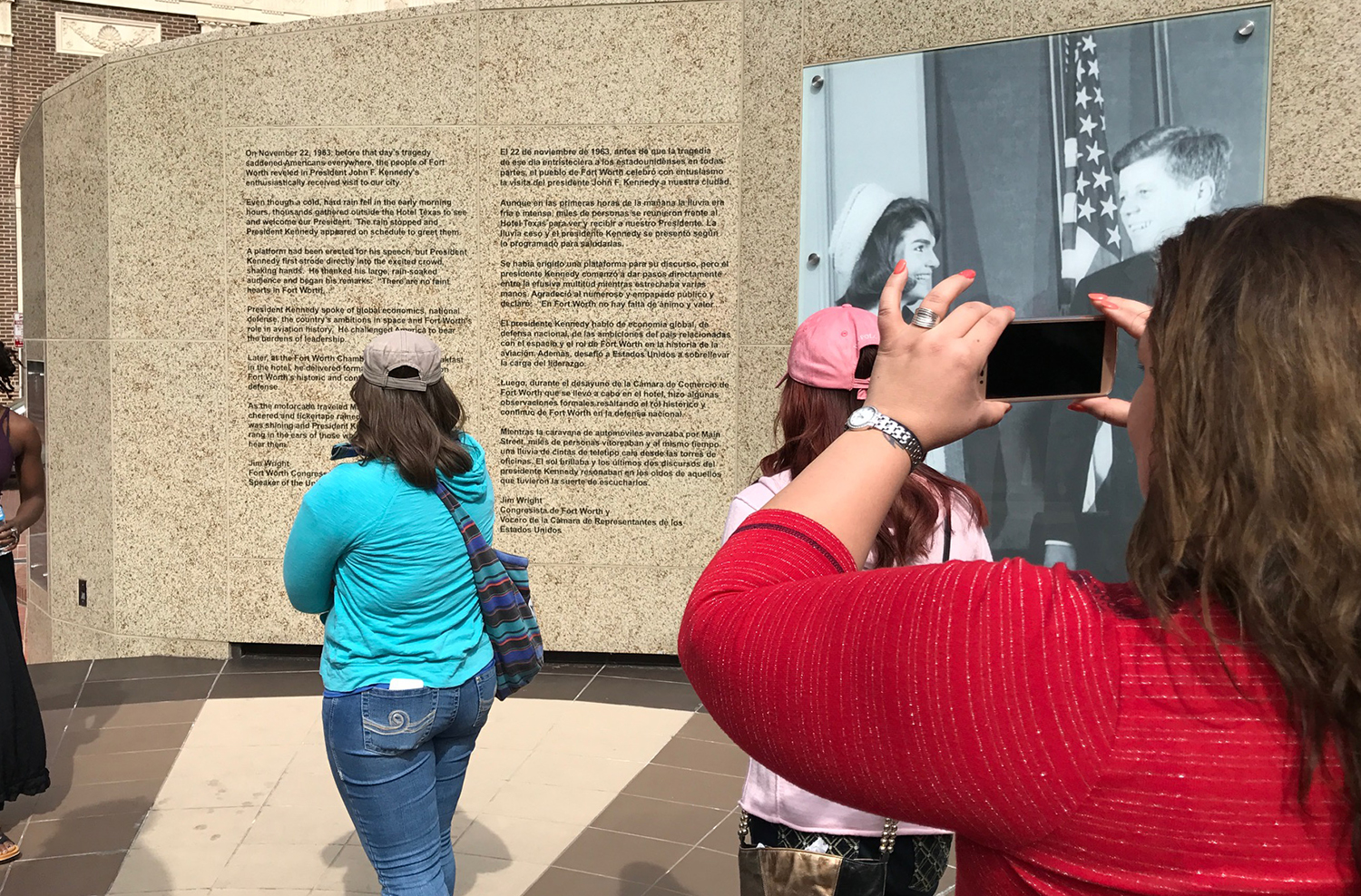By Anne Francomano/ reporter

TCC community members boarded a yellow school bus making its way through downtown for a glimpse into little-known local history.
In celebration of Black History Month, Sarah Walker, Tarrant County Black Historical and Genealogical Society president, led a two-hour Historic Fort Worth Bus Tour Feb. 17.
Throughout the tour, Walker fielded questions while students scribbled notes for a class paper or personal interest.
On entering the Mount Gilead Baptist Church, visitors gazed upward at the glass dome and custom stained glass windows.
Mount Gilead holds a special place as the oldest church for the black community in Fort Worth, Walker said.
Starting with 40 members in 1875, the congregation grew steadily into the next century.
“Multiple local churches grew out of Mount Gilead,” she said.
Over refreshments in the basement meeting room, participants viewed walls adorned with a black history quiz, profiles of prominent women and historic photographs, including the congregation’s march from the original location to its present-day site for the 1913 opening.
Tucked away in a closed-off corner, visible through a window, was the remaining cavern of a deep swimming pool. The pool was part of the facilities that Mount Gilead’s congregation built to serve the local black community, which was denied access to the Fort Worth pool and library as well as restaurants and hotels.
Mount Gilead had a cafeteria and library and provided services such as training programs and an employment bureau.

“As Fort Worth has changed over the years, vestiges of its history and original roots are disappearing,” Walker said. “It is increasingly important to preserve this information for future generations.”
In 1977, Lenora Butler Rolla founded the Tarrant County Black Historical and Genealogical Society to gather and preserve materials and artifacts related to the Tarrant County black community and make them accessible to the public. The society’s extensive archive, including books and newspapers, is housed in the Lenora Rolla Heritage Center Museum in a restored, historic Southside home.
“It was helpful to learn that for only $10 students can join the society and get involved with museum volunteer opportunities that engage them with the local community,” TR academic affairs director Labotta Taylor said.
In addition to the museum’s permanent displays profiling prominent historic and contemporary community figures, the TCC group also viewed an exhibit by local artists. Works ranged from colorful mixed media to detailed charcoal pencil portraits.
The art show is sponsored in conjunction with TR Campus. A selection of artwork is on display in the TR Rotunda through the end of February.
At the Texas and Pacific passenger terminal building, which has been converted to residences, the tour viewed the Freedom Train wall relief sculpture. The installation highlighted the experience of African-American railroad workers through history to modern day.
“The entire history of Fort Worth is not African-American history alone,” Walker said. “It is a shared history. Lives are intertwined by all sorts of events. The 1949 flood and the interstate construction in the 1950s affected communities of all colors.”
Of the many changes she has witnessed, Walker described TCC as one with a great impact on Fort Worth.
“TCC was really the best thing for this area,” she said. “It provides the opportunity for students to have the college experience right here in their hometown.”
Walker said it is wonderful there are so many opportunities available today that earlier generations did not have.

